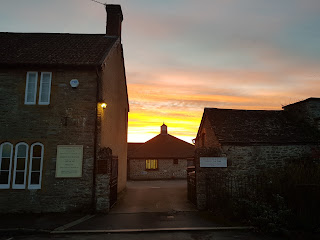Fast (again)

Can the guests of the bridegroom fast? (2:19) Last year I met up with an old friend. We had not seen each other for a little while and he was a little nervous that we might have little to say to one another. As it was, it was as if no time had passed. We nattered and laughed away as if we were still two students sharing a short corridor in our first year at university. At some point we discussed when we had last met and it transpired that we had last met at my wedding 25 years before. As we look to move out of the season of Christmas, we may want to remember that we are moving into the season of fasting. No, I don't just mean Lent, which begins on the 17th of February. I mean the long gap between the two arrivals of Jesus, between the first appearance of the bridegroom and the second, between, if you like, the wedding and the return. Of course we have a taste of the joy of the permanent and personal presence of Jesus - he lives in his people by the Holy Spirit. Yet we are in a seas...












